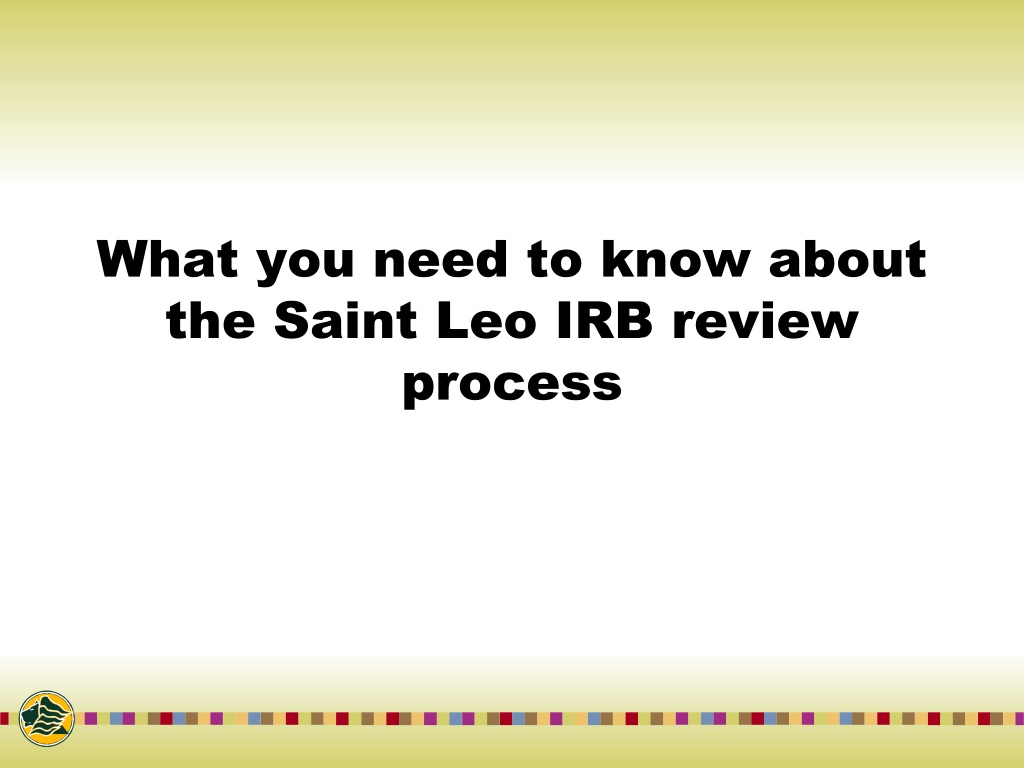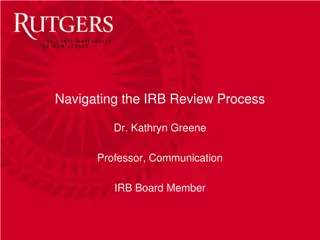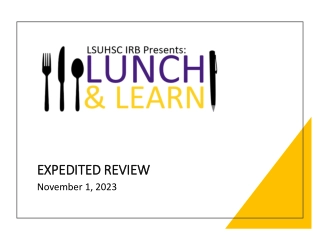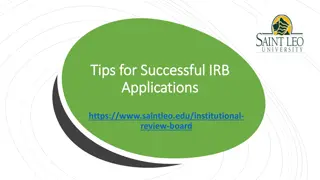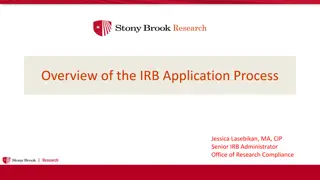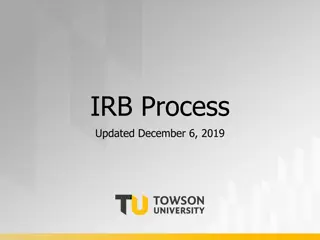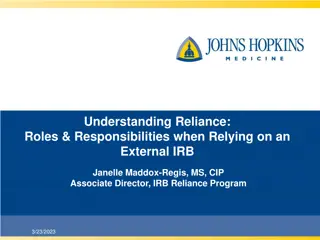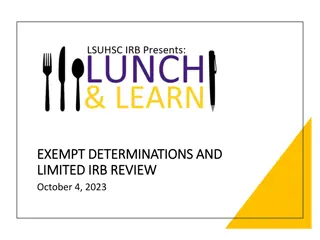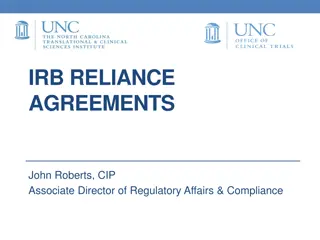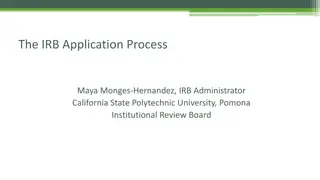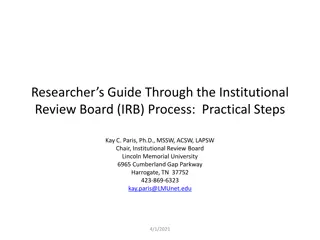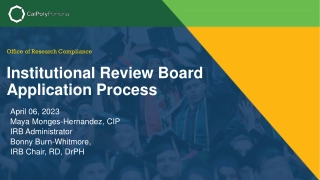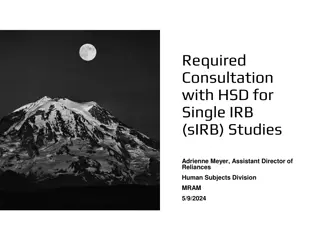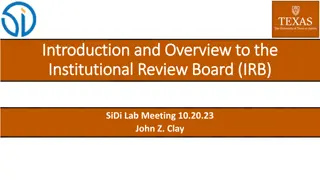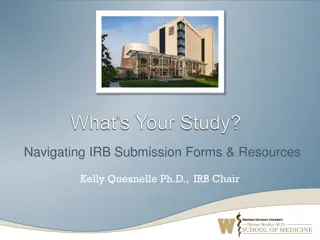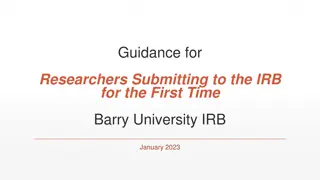Understanding Saint Leo IRB Process
Discover the Saint Leo IRB review process, its purpose, requirements for research approval, definitions of human subjects and research, and how to apply for IRB approval. Learn about the exclusion criteria for class activities and access useful resources and guidance for conducting research at Saint Leo University.
Download Presentation

Please find below an Image/Link to download the presentation.
The content on the website is provided AS IS for your information and personal use only. It may not be sold, licensed, or shared on other websites without obtaining consent from the author. Download presentation by click this link. If you encounter any issues during the download, it is possible that the publisher has removed the file from their server.
E N D
Presentation Transcript
What you need to know about the Saint Leo IRB review process
Information available online IRB procedures and bylaws IRB FAQs Definition of research Link to the CITI ethics training Application form Instructions to fill out the application form Chart of the review process Templates for various types of consent Explanation of the various types of consent
What is the purpose of the IRB? To ensure compliance with the Federal Policy for the Protection of Human Subjects (45 CFR Part 46: Common Rule ) To ensure observance of policies of Saint Leo University regarding the protection of human subjects in any and all research conducted by faculty, students, or staff at Saint Leo University.
Please note Any research on human subjects that is conducted by Saint Leo students, staff, or faculty needs to be approved by the Saint Leo IRB before data collection begins.
What is a human subject? A physical person or any data or tissue pertaining to a physical person
What is research? a project or study is research if it is conducted with the intention of drawing conclusions that have some general applicability and uses a commonly accepted scientific method. The random collection of information about individuals that has no general applicability is not research (Steneck 2007:39). Steneck, Nicholas H. 2007. ORI Introduction to the Responsible Conduct of Research. Washington,DC: U.S. Government Printing Office.Retrieved November 6, 2010 (http://ori.dhhs.gov/documents/rcrintro.pdf).
Class activities are excluded if they meet all the following criteria: Part of a course requirement Supervised by faculty Not shared outside of class No contribution to generalizable knowledge No risk to participants No sensitive population Complete anonymity No generation of new knowledge
How to apply for IRB approval Fill out every single item of IRB application form, part 1 1 If any * is checked, fill out part 2 2 For student research, obtain signature from faculty advisor 3 Attach any instrument(s) used in the research 4 Attach consent form(s) as applicable 5 Attach permission from outside agency if applicable 6 Attach proof of ethics certification for PI and faculty advisor if PI is a student 7 Email complete application to irb@saintleo.edu irb@saintleo.edu 8
The review process Full review Expedited review Exemption
Exemption No risk greater than daily life No sensitive population Review by one IRB member Decision within 10 days of receipt For student research, faculty advisors are cced on all communication
Expedited review Sensitive population and/or Some risk Review by 3 IRB members Decision within 15 days of receipt For student research, faculty advisors are cced on all communication
Full review Highly sensitive research Review by the full IRB at the next IRB meeting The IRB meeting every third week of every 8- week term For student research, faculty advisors are cced on all communication
Types of IRB decisions Revise and resubmit Minor revisions required Not Approved approved
Not approved The proposed research is unethical Examples: Risk too high compared to benefits Sharing of data for disciplinary purposes PI lacks expertise to address risk The PI CANNOT proceed with the research
Revise and resubmit The application presents serious flaws, but is not unethical Examples: Inconsistencies in procedures described Unclear answers Insufficient measures to ensure confidentiality Pronounced deficiencies in writing of consent forms and/or data collection instruments The PI needs to rework the proposal according to IRB feedback and resubmit it for a new review
Minor revisions required The application presents minor flaws Examples: A minor inconsistency in the application form Minor clarification needed Minor grammatical issues in the consent form or instrument The PI forwards the required revisions and may then proceed with the research
Approved No modifications required The PI may proceed with the research
